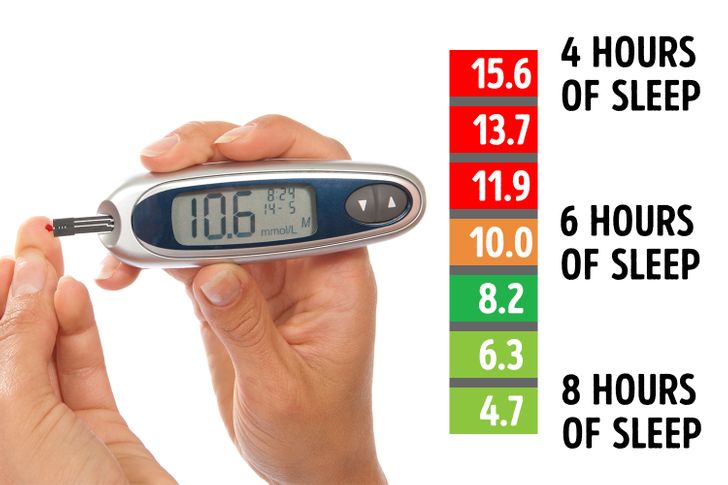A study shows that sleeping for 8 hours regularly is not really a luxury, but more an essential part of a healthy routine. Lacking sleeping hours can seriously affect your mental, emotional, and physical health. Researchers found that only about 40% of people in the US get enough sleep. Let’s have a look at what happens if you start prioritizing your sleep.

What happens if you don’t sleep?
Not getting enough sleep can lower your sex drive, weaken your immune system, cause thinking issues, and lead to weight gain. When you don’t get enough sleep, you may also increase your risk of certain cancers, diabetes, and even car accidents.
If you find yourself part of this no-sleep category, you’re not the only one. Approximately 1 in 3 American adults isn’t getting enough sleep, according to the American Academy of Sleep Medicine (AASM).
We believe it’s very important to keep an eye on different findings about our well-being and can’t wait to share this info with our readers. Here are 12 thing that happens to your body if you sleep 8 hours every day.
1. You may prevent the development of diabetes.

Research has found that sleep makes a big difference in regulating blood sugar and sensitivity to insulin and as a result, preventing type 2 diabetes. It seems that the “deep” stage of sleep is especially critical for this and if you shorten your sleeping time, you are very likely to skip that important part.
2. You will learn new things quicker.
If you don’t get enough sleep, it has an effect on how well you can concentrate on new skills and remember new things. Scientists found that we process new information while sleeping. In other words, your mind and body are better in the morning after you’ve had a proper rest, than before you hit the pillow the night before. And this applies to any new skills, from university studying to playing a new sport.
>>> CONTINUE READING…
..
The Brain, Neuroscience, Brain Fitness, Cognitive Science, Cognition, Aging Brain, Consciousness, Brain Cancer, Brain Injury, Brain Tumour, Brain Damage, Neurophilosophy, Brain Tumors, Neurology, Depression, Brainstorming, Brain Hemorrhage, Dementia, Brain Disease, Braintree, Brain Implant, Anxiety, Brain-computer Interface, Life Sciences, Health, Health Care, Health (India), Health Care Technology, Health Care (Canada), Healthy Recipes, Health Insurance, Health Care (India), Health Care (Australia), Public Health, Healthy Eating, World Health Organization, Mental Health, Health Care Law, Healthy Living, Health Policy, Heart Disease, Health and Safety, Diabetes, Women’s Health, Health (UK), Digital Health, Food, Cooking, Nutrition, Healthy Eating, Food Industry, Food & Dining, Foodies, Food (UK), Food Security, Food Science, Food (Canada), Fast Food, Food (India), Food Trucks, Food Safety, Breakfast, Food (Australia), Meat, Eating, Food Delivery, Vegetarianism, Food Insecurity, The Brain, Neuroscience, Brain Fitness, Cognitive Science, Cognition, Aging Brain, Consciousness, Brain Cancer, Brain Injury, Brain Tumour, Brain Damage, Neurophilosophy, Brain Tumors, Neurology, Depression, Brainstorming, Brain Hemorrhage, Dementia, Brain Disease, Braintree, Brain Implant, Anxiety, Brain-computer Interface, Life Sciences, Health, Health Care, Health (India), Health Care Technology, Health Care (Canada), Healthy Recipes, Health Insurance, Health Care (India), Health Care (Australia), Public Health, Healthy Eating, World Health Organization, Mental Health, Health Care Law, Healthy Living, Health Policy, Heart Disease, Health and Safety, Diabetes, Women’s Health, Health (UK), Digital Health, Food, Cooking, Nutrition, Healthy Eating, Food Industry, Food & Dining, Foodies, Food (UK), Food Security, Food Science, Food (Canada), Fast Food, Food (India), Food Trucks, Food Safety, Breakfast, Food (Australia), Meat, Eating, Food Delivery, Vegetarianism, Food Insecurity,

